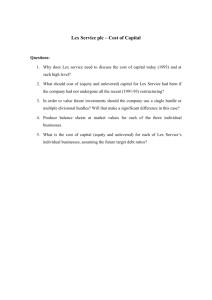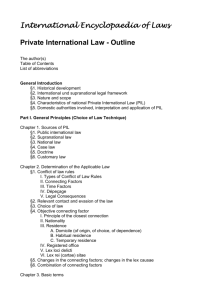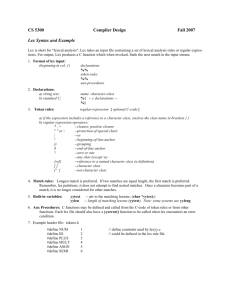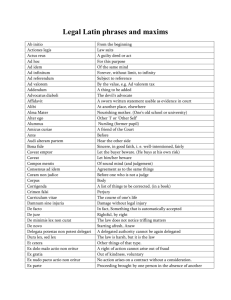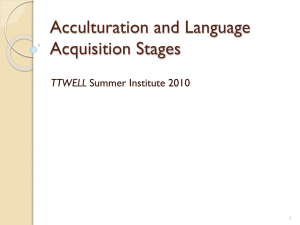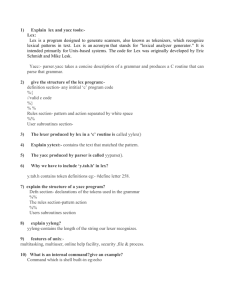Political obligations in the world society, Boisi Center 10.2.13
advertisement
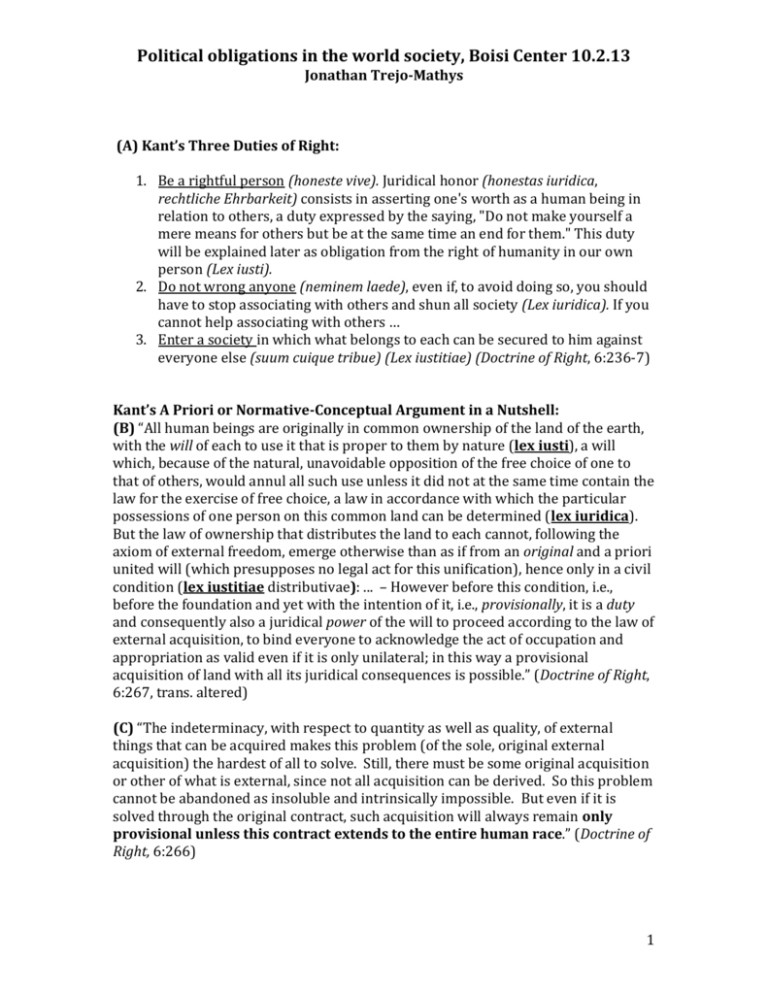
Political obligations in the world society, Boisi Center 10.2.13 Jonathan Trejo-Mathys (A) Kant’s Three Duties of Right: 1. Be a rightful person (honeste vive). Juridical honor (honestas iuridica, rechtliche Ehrbarkeit) consists in asserting one's worth as a human being in relation to others, a duty expressed by the saying, "Do not make yourself a mere means for others but be at the same time an end for them." This duty will be explained later as obligation from the right of humanity in our own person (Lex iusti). 2. Do not wrong anyone (neminem laede), even if, to avoid doing so, you should have to stop associating with others and shun all society (Lex iuridica). If you cannot help associating with others … 3. Enter a society in which what belongs to each can be secured to him against everyone else (suum cuique tribue) (Lex iustitiae) (Doctrine of Right, 6:236-7) Kant’s A Priori or Normative-Conceptual Argument in a Nutshell: (B) “All human beings are originally in common ownership of the land of the earth, with the will of each to use it that is proper to them by nature (lex iusti), a will which, because of the natural, unavoidable opposition of the free choice of one to that of others, would annul all such use unless it did not at the same time contain the law for the exercise of free choice, a law in accordance with which the particular possessions of one person on this common land can be determined (lex iuridica). But the law of ownership that distributes the land to each cannot, following the axiom of external freedom, emerge otherwise than as if from an original and a priori united will (which presupposes no legal act for this unification), hence only in a civil condition (lex iustitiae distributivae): ... – However before this condition, i.e., before the foundation and yet with the intention of it, i.e., provisionally, it is a duty and consequently also a juridical power of the will to proceed according to the law of external acquisition, to bind everyone to acknowledge the act of occupation and appropriation as valid even if it is only unilateral; in this way a provisional acquisition of land with all its juridical consequences is possible.” (Doctrine of Right, 6:267, trans. altered) (C) “The indeterminacy, with respect to quantity as well as quality, of external things that can be acquired makes this problem (of the sole, original external acquisition) the hardest of all to solve. Still, there must be some original acquisition or other of what is external, since not all acquisition can be derived. So this problem cannot be abandoned as insoluble and intrinsically impossible. But even if it is solved through the original contract, such acquisition will always remain only provisional unless this contract extends to the entire human race.” (Doctrine of Right, 6:266) 1 Political obligations in the world society, Boisi Center 10.2.13 Jonathan Trejo-Mathys Young’s Social Connection model (D) Social structural processes = “the confluence of institutional rules and interactive routines, mobilization of resources, as well as physical structures such as buildings and roads” Structural injustice = “when social processes put large categories of persons under a systematic threat of domination or deprivation of the means to develop and exercise their capacities, at the same time as these processes enable others to dominate or have a wide range of opportunities for developing and exercising their capacities. [It] is a kind of moral wrong distinct from the wrongful action of an individual agent or the willfully repressive policies of a state. [It] occurs as a consequence of many individuals and institutions acting in pursuit of their particular goals and interests, within given institutional rules and accepted norms” (Iris Marion Young, “Responsibility and Global Justice”, 111,114) A Posteriori or Empirical ‘Social-Evolutionary’ Kantian arguments (E) “Interdependence via indefinite social activity establishes the scope of political obligation precisely because the circumstances of global politics emerge through nonvoluntary inclusion in indefinite cooperative schemes. … Kant and other transnational republicans were right when they contended that the achievement of a democracy of demoi is now a fundamental demand of political justice and an obligation of humanity to construct … Republicanism provides the best interpretation of the basic claim that there is an obligation to form a political community beyond the nation-state” (James Bohman, Democracy Across Borders, 18, 25, 102) (F) “The translation of the first human right into positive law gave rise to a juridical duty [or ‘duty of right’] to realize exacting moral requirements, which has become engraved into the collective memory of humanity.” (Habermas, “Human Dignity and the Realistic Utopia of Human Rights”, 476) 2
